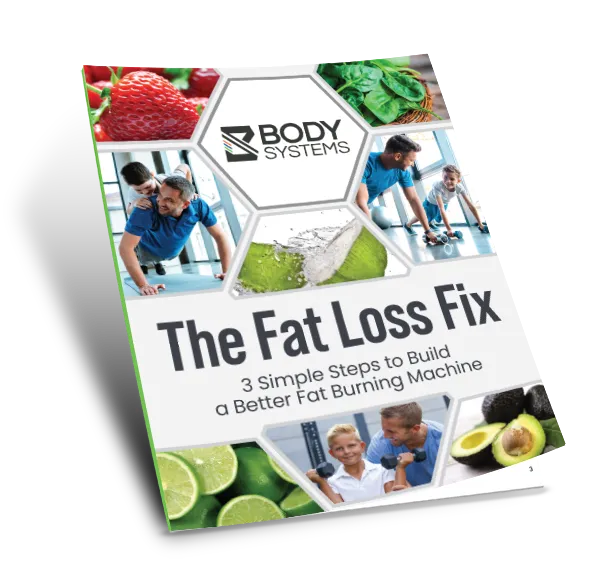Gonna be super honest here…
I’m not a huge fan of Orlando, FL.
I get the whole Disney thing, but outside of that, well, there doesn’t seem to be much appeal…
Unless you like convention centers and chain restaurants.
Nonetheless, I just returned from a glorious five days in Orlando for a business and nutrition conference and wanted to share an equally interesting and concerning topic around fat loss.
It’s a concept called “collateral fattening.”
According to the research, “Collateral fattening refers to the process whereby excess fat is deposited as a result of the body’s attempt to counter a deficit in lean mass through overeating.”
In layman’s terms, it’s the increase in body fat that comes as a result of aggressive dieting and subsequent lean muscle mass loss…
And if you care about losing fat and keeping it off, then this is a concept that you need to acknowledge.
Put simply, when we diet, i.e. restrict calories, we lose weight.
Generally speaking, when we lose weight, we lose fat mass, water weight, and lean muscle mass. In fact, most weight loss programs, especially those done aggressively (>1.5% of body weight loss per week), lend itself to somewhere around 50% of the weight loss coming from lean muscle tissue.
That’s not a good thing.
Muscle is extremely valuable and metabolically advantageous tissue that needs to be preserved, not only as we age (we typically lose 1 lb per year every year after 40 yrs old), but through dieting.
Why Does this Happen?
Because of collateral fattening.
The more muscle we lose when dieting, the harder the body pushes back against the changes.
Remember the show “The Biggest Loser”? Did you know most of the contestants gained their weight back and then some? A perfect and disheartening example of “collateral fattening” in effect.
How Does this Happen?
- Downregulation of fat-burning hormones, i.e., testosterone, thyroid hormone, and energy production.
- Upregulation of hunger hormones, i.e., leptin and ghrelin.
In other words, we get very tired and very hungry…
So much so, that we are subconsciously forced into replacing the calories lost through reduced movement and increased appetite.
We essentially eat back the weight lost as our bodies attempt at replacing the lean muscle mass – but, because we’re so sensitive to the increase in calories, we end up piling on more body fat than what we lost in the first place (termed: fat hyperphagia).
And this is why most diets fail, i.e. 95% of dieters lose weight only to gain it back, and then some.
What to do instead?
Two fundamental factors are requisites to the dieting process if we’re going to lose body fat and keep it off:
1. Protein intake – The goal should be aiming for 1g per pound of ideal body weight. For example, a 200-lb male with a goal weight of 180 lbs should consume around 180g of protein daily.
2. Resistance training – If we want to spare muscle mass through dieting, then we need to strength train. It’s non-negotiable.
In fact, the amount of muscle mass lost during a dieting period is the most significant predictor of weight regain…
Therefore, it would seem only logical to make sure that you’re doing everything you possibly can to preserve, if not improve, lean muscle mass in general, to say nothing of during periods of dieting.
So, if you’ve lost weight before, only to regain it, it begs the question:
1. Were you eating enough protein?
2. Were you strength training at least 3x per week?
Naturally, there’s a slew of other important factors, including how aggressive the calorie deficit is, how long you’re dieting, the intensity of the strength training, your age and hormonal status, etc.
But, the most important factor here is understanding that the ways we think we should be losing, as presented by popular books and media, are supremely flawed.
- It doesn’t matter how much “weight” you lose if you can’t keep it off.
- It doesn’t matter what dieting method you subscribe to if it’s not helping you support lean muscle mass.
- And there’s no use in trying to aggressively diet if you’re not factoring in how the body is going to respond when the diet is over.
The ONLY way to permanently lose body fat is by learning how to work with the body and its metabolic processes, so that you don’t end up playing this weight loss tug of war year after year, perpetuating frustration and misery.
And the good news is you CAN do this while eating what you want and learning how to enjoy resistance training without feeling like you need to be perfect.
If you want to know more about how this works, just shoot me a message and we can chat.
Your Coach,
Ben




